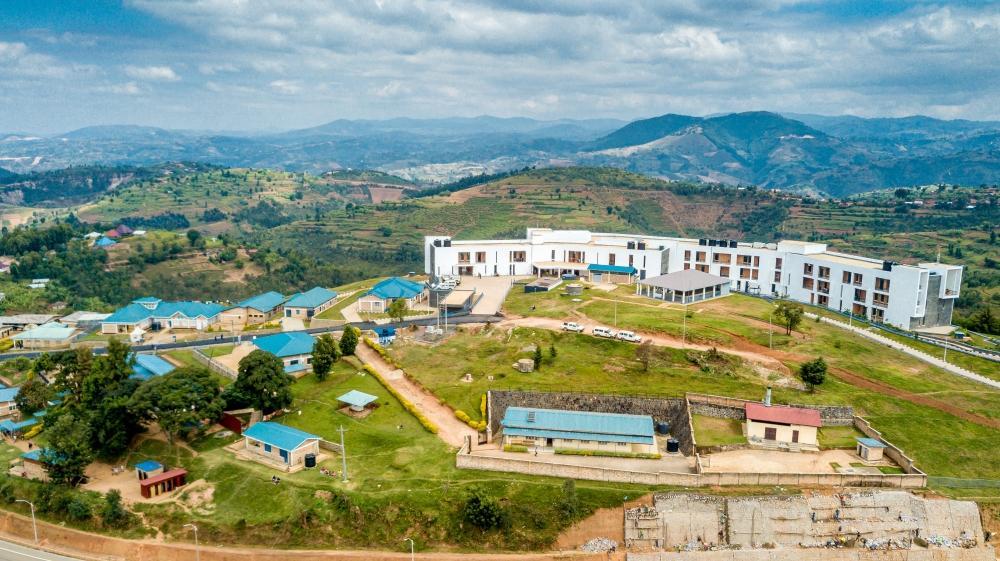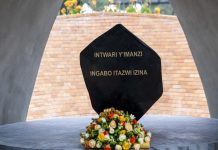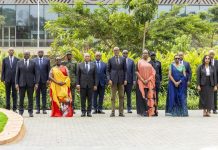Africa-Press – Rwanda. Rwanda is celebrating 25 years of decentralisation, reflecting on a journey marked by bold reforms, in particular increased citizen participation, and service delivery that has brought the government closer to the people.
This silver jubilee coincides with the East African Local Government Forum Meeting held in Kigali, July 22-24, a platform that looks to strengthening the role of local government in regional integration and promoting cross-border cooperation.
Decentralisation reforms in Rwanda originated from the Village Urugwiro Dialogue (1998–1999), where leaders and citizen representatives charted the country’s post-Genocide journey of reconstruction and development. One key issue that came on board as a priority was the need to correct a highly centralized system that was unaccountable, detached from communities, and riddled by inequality and poor service delivery.
In response, Rwanda adopted decentralisation in 2000 as a tool for democracy and inclusive development to bridge the gap between government and citizens, empower local voices, and build stronger institutions from the bottom up.
How structures work
Rwanda’s decentralised system is structured across several levels, from villages where it focuses on community mobilization and security, and administrative cells that handle basic services, collect data, and coordinate outreach.
Sectors act as centers for delivering administrative services as districts and the City of Kigali oversee planning, budgeting, and development project implementation. Provinces provide coordination and strategic advice as the central government sets national policies and monitors standards.
Territorial and administrative reforms
Over the years, the governement implemented several major territorial reforms. Between 2001 and 2005, the nation elected local leaders in 106 districts and over 9,000 cells.
In 2006–2011, there was a reduction of provinces from 12 to 5, districts from 106 to 30, and sectors from 1,545 to 416, creating more manageable administrative units.
From 2012 to 2017, the country strengthened the capacity of local institutions to take on more responsibilities, and starting in 2017 to 2029, integration of decentralisation into national strategies (NST1 and NST2), focuses on long-term development goals.
Why decentralise?
According to Bob Gakire, Permanent Secretary in the Ministry of Local Government, decentralisation goes beyond transferring power. It is about changing mindsets from citizens who depend on the state to productive participants in the development of the country.
“Citizens as clients-citizens must be further transformed from beneficiaries to clients. We need more home-grown initiatives to address socio-economic challenges, local government accountability and transparency,” he noted.
Closer, reliable and faster services
The Rwandan Constitution provides that citizens take part in national development. Today, 86 per cent of citizens are actively involved in community initiatives, a clear sign that people feel part of the country’s progress, according to the Ministry of Local Government.
Improved services are cheaper at 75 per cent, faster at 73 per cent, reliable at 80 per cent and more accessible at 76 per cent.
“Health, education, civil registration, and infrastructure services are now available closer to where people live, helping reduce time and cost for citizens,” Gakire said.
In terms of innovation in leadership, Gakire explained that the government encourages local leaders to be creative in problem-solving. Initiatives like performance contracts (Imihigo) have nurtured a culture of results and accountability.
Non-governmental organizations (NGOs) and development partners now coordinate closely with local authorities under frameworks like Joint Action Development Forum (JADF), leading to better alignment and shared responsibilities.
However, despite many successes, challenges remain including capacity gaps in skills, leadership, and resources, particularly in fast-growing urban areas, as Gakire noted. This in addition to limited creativity and participation in certain communities, especially in responding to today’s complex and fast-changing issues and need for stronger institutional frameworks to promote innovation, motivation, and training at the local level.
Way forward
The Local Governance Institute is being considered to provide continuous training for leaders and address gaps in skills, especially in urban governance.
Gakire pointed out that decentralisation is a process and for it to be entrenched, a country must keep reminding every actor at all levels of their role in its success.
“Decentralisation has impacted Rwanda’s governance and development processes in terms of recognizing that leadership is key to achieve the set targets as a country amidst capacity gaps,” he said.
“Flexibility is important for reforms and adjustments, institutional synergy and innovation – local governments are able to co-ordinate effectively local service delivery and development,” he said.
“This has been made possible because we have achieved the difficult balance of decentralising power, authority, resources and positions while developing tight accountability mechanisms.”
Source: The New Times
For More News And Analysis About Rwanda Follow Africa-Press






